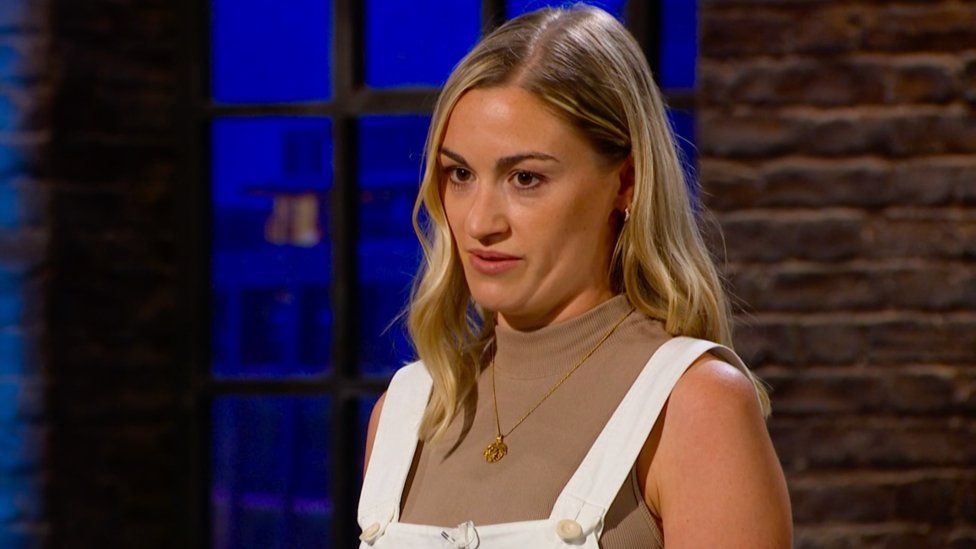Dragons' Den episode edited after ear seed complaints about Giselle Boxer pitch
- Published

Giselle Boxer pitched her ear seed product to the dragons
The BBC has edited an episode of Dragons' Den following complaints about a wellness business it featured.
Campaigners for myalgic encephalomyelitis (ME) complained the show promoted "unfounded" claims that a product could help the condition.
Giselle Boxer, a businesswoman from Sheffield, said ear seeds helped aid her recovery from ME.
The BBC said a "a clarification has been added to the programme on iPlayer to address the concerns raised".
A text statement is now displayed on screen while Ms Boxer is seen pitching her Acu Seed business.
It reads: "Acu Seeds are not intended as a cure for any medical condition and advice should always be sought from a qualified healthcare provider about any health concerns."
In the episode, which aired on 18 January, Ms Boxer said she had used "diet, acupuncture, Chinese herbs and ear seeds" to aid her recovery from ME, and had turned the latter idea into the brand Acu Seeds.
A disclaimer on the company's website states that the product is not used to diagnose, treat, cure or prevent any disease.
What are ear seeds?
Proponents of ear seeds - which are tiny beads placed on the ears - say they stimulate pressure points.
ME, also known as chronic fatigue syndrome, is a long-term condition with symptoms including exhaustion, insomnia and struggling to concentrate.
The NHS says, external that while there is currently no cure for the condition, there are treatments that may help manage it.
Ear seeds are placed on different points on ears
An open letter organised by Action for ME to the chairs of two House of Commons select committees said they were "very concerned" about the way in which Ms Boxer's pitch was presented.
The group said the comments made suggested the product was "responsible for her recovery and should therefore be considered an effective treatment".
It added: "Sadly, there is currently no known effective treatment for ME. There has been a distinct paucity of research into this disease, compared to other long-term conditions, which means that ME is still without a cure.
"As a result, we remind people to only take medical advice from appropriately qualified healthcare professionals and to ensure that any treatment decisions are evidence-based and fully informed."
The letter also said broadcasters must make "every effort to ensure that content is accurate and does not contain misleading and potentially dangerous information".
Action for ME said on social media that it had also written to BBC director-general Tim Davie to voice its concerns about the episode.
- Published25 January
- Published1 April 2021